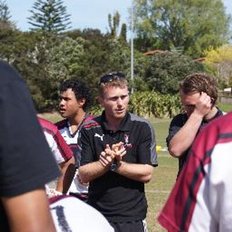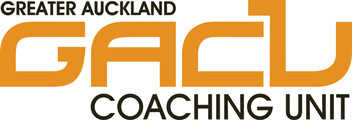What is the purpose of the GACU?
This answer is going to be political, sorry! GACU was created to streamline the outcomes around coaching and coach development in the Auckland region. Prior to 2008 the four Auckland Regional sports trusts (RSTs) all reported to Sport NZ on their coaching work separately, even though most of it was similar if not identical. 2008 saw the 4 RSTs agree to combine their outcomes so only one report was sent to Sport NZ. That then allowed for more collaboration between the four RSTs around coaching. The purpose now, I would say, is to be the voice for coaching in the Auckland region. Since then, GACU has grown to become a significant coach development resource, one that Sport NZ utilises regularly to consult with/advocate for coaching on a national scale. However, GACU technically doesn't exist anymore. The name has been changed to Aktive Auckland Coaching & Talent Development due to changes here in the sporting sector.
Is there anything the GACU has put on or hosted for coaches that seems to get the best feedback?
We run forums for Auckland's regional sports organisations (RSOs) every year (sometimes quarterly, sometimes less than that) which always receive good feedback. This is a chance for the coach development staff from these organisations to get together and network, learn about what each other offers and sometimes we will provide them with some PD from a guest speaker.
We also run a programme called Performance Coach Advance (PCA), which targets performance coaches. This is a 12 month development program that involves four day long workshops with a guest speaker (these act as the 'what'), four forums where we unpack the content from the workshops (these act as the 'how') and then each coach receives a mentor to take the learning and help apply it to their contexts (this acts as the 'why'). The feedback for this program has been fantastic from the coaches involved. We are into the second intake of this. It is now a Sport NZ funded program but GACU created the concept that has now gone nationwide.
What's the best/most useful coach education that you have undertaken personally?
I feel really lucky to be in the role I am at this stage in my career, as I feel I am getting some pretty outstanding coach education just doing my role. We have access to quality national and international speakers like Craig Lewis, Wayne Goldsmith, Dr Ralph Pim, Lynn Kidman, Alex McKenzie and access to the coach development PD High Performance Sport NZ put on also. Because of the open and collaborative nature of GACU (now Aktive Auckland Coaching & Talent Development) the conversations we have within the team are of real value too. I can flick an email with an issue I may be faced with to the team and this starts a conversation that often ends with a new idea or take on that issue to go away and try. We also find within the PCA program mentioned above, and any workshop run, the conversation and sharing of ideas between coaches, often coaches from different sports, is hugely beneficial. That is what most people feedback on.
If you could plan the framework, what do you think the most valuable Coach Education programme would include/focus on?
The PCA program mentioned above I think is pretty good. You have the 'what', 'how' and 'why' covered through the workshops, forums and mentoring happening. It is also a pretty good mix of a formal coach education model mixed with informal models. These complement each other really well to maximise learning I think.
I've seen on Twitter that culture is a big thing for you as a coach - in your opinion what is it about culture of NZ Rugby in general that keeps NZ so consistently excellent?
That is such an interesting topic huh! I think any culture is around people. If you have people pushing to continually improve and develop within a culture you are on to a winner. The AB's have worked pretty hard on getting that, on getting guys who will keep pushing to improve, to develop and to develop others around them. Guys like Richie McCaw, Conrad Smith, Dan Carter, Keven Mealamu are all pretty integral to that. Then the next tier of guys coming through are seeing that so that type of thinking starts to manifest so it becomes accepted to act like that. Have you heard of the book Legacy by James Kerr? It goes pretty in depth into the culture of the ABs.
To my detriment I've not had a chance to read it yet but have heard plenty about it and read excerpts. I think amateur clubs across the country now have players cleaning out their changing room after games to get some of the AB magic! Similar to producing players, what do you think NZ has in place to create so many high level coaches? - Gatland, Schmidt, Cotter, Delaney all in big roles here in the UK.
I think there are probably so many answers to this question. The fact that Rugby is our national game has a big part to play in this, as there are plenty of teams for coaches to have the opportunity to coach and learn the 'art' of coaching for want of a better phrase. The All Blacks winning the last RWC also plays a part in that too. For example, I think if England, Australia, South Africa win the RWC this year you will see more coaches from those countries picking up more higher profile coaching roles.
Personally, I don't think we do anything better/different in terms of formal coach development. However, in pockets there are regions/provinces that strongly encourage coaches to interact, share ideas and this also has a part to play in coaches developing. I think Rugby in NZ has a strong-ish informal coach development program happening, sometimes by chance but this a real positive. It can supplement the more formal learning.
What are the key aspects of creating culture for your own coaching? I've seen you mention a player-centred environment a lot, and players taking ownership..?
Yea I try to create an environment that the players feel they have ownership of. This has been more successful with some teams over others as I am still learning the best way to do this, and also that with each team I coach there are different ideas/strategies that will be more successful than others. We spend a lot of time at the beginning of the season talking about some key values we want to live by for the season, but then turning those in to key behaviours that we will all see at training, games and off the field. The key from there is monitoring to make those behaviours discussed become the norm.
I am also learning about how much control I can give the athletes depending on their age, maturity, commitment to the team etc. The under 21 club side I took this year was a really great learning experience as I felt there were guys in the team who we could really trust to take ownership of the culture, of the intensity we trained at, of the behavioural standards etc but about 1-2 months in to the season we realised we probably made a mistake in giving them too much control and not actually working with them to understand what we expected of them in this regard. Both we as coaches and the leaders of the team were getting frustrated with how the season was progressing so we stepped in and made a few changes which helped set things back on track.
I coach a University side so am particularly interested to hear about the U21 side you coach, what are the key things you keep in mind for that age group for their development?
I guess looking at raising their awareness around what they are doing on the field, in terms of understanding the game of Rugby, as well as their preparation and review. Most of them have been playing the game for a few years so they understand the basics to a certain standard. A big belief of mine is 'knowing why beats knowing how' so I try to really instill a knowledge of the game so when they are on the field they have the background understanding to make quality decisions. I want the players to be able to adjust game plans/tactics without needing to wait until half time or a message comes on from us on the sideline.
I guess I have slightly altered my expectations of guys at this age group though over the past two years. Like I mentioned above, I am now more likely to drip-feed this kind of information, and the ownership of the environment to the players, rather than dumping these ideas and concepts on them all at once.


 RSS Feed
RSS Feed
